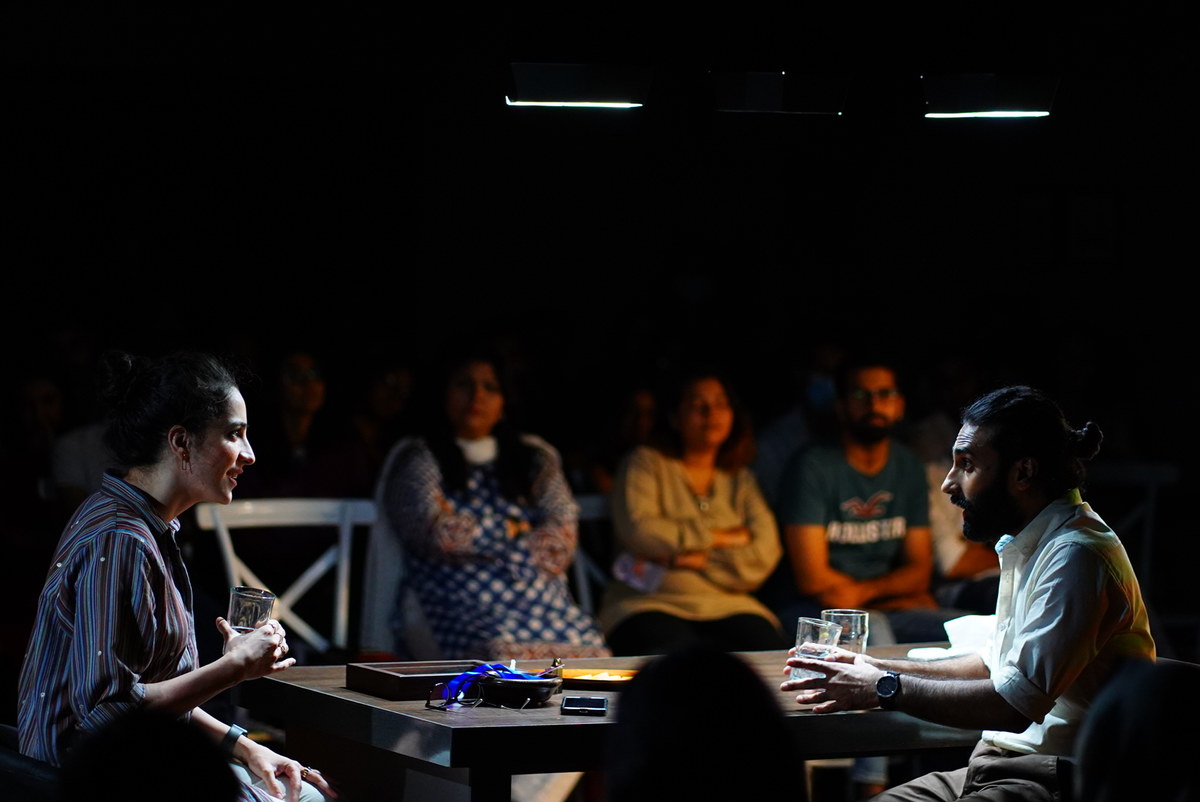KARACHI: Ticket sales from a new theater play written by Ali Junejo, director of the first Pakistani film to be selected in Cannes, are going to support relief efforts in the country’s flood ravaged south.
“Both Sit in Silence for a While,” which premiered at National Academy of Performing Arts in Karachi on Friday, is a 60-minute dark comedy written in English. It will be staged through Sunday.
“All the gate money collected through the show that will be collected on Sunday 28th August at 4 p.m. will go to Balochistan and Sindh flood relief effort,” Junejo told Arab News after the premiere.
He features in the play with Rasti Farooq, who made her debut in “Joyland.” There only two characters in the play. They are both in love and at odds with each other.
“It was extremely challenging for lots of reasons,” Farooq told Arab News after the premiere.
“Every single thing I spoke was scripted. It’s so rapid and we have to keep the momentum up without making it sound like they are just arguing because there is so much humor in the middle of that too.”

Ali Junejo and Rasti Farooq perform "Both Sit in Silence for a While" in Karachi on Aug. 26, 2022. (Photo courtesy: Olomopolo Media)
Produced by Junejo, Farooq and Olomopolo Media, the play in English is a rare feat on the Urdu-dominated theater scene in the Pakistani megapolis.
“What we liked about the production was not just of course the story but also that it was an original English play as well,” Kanwal Khoosat from Olomopolo Media told Arab News.
For the audience, the experience was also unique.
“It’s very rare to see such a performance onstage. There are just two people. How their relationship starts, where it takes them and what all it entails. The actors are just amazing,” veteran artist Samina Ahmed told Arab News.
“It takes the benchmark, it pushes it a little more for other people to try and come up to this level of writing and this kind of direction. And this level of acting. It’s a beautiful work.”
Theatre actor and visiting faculty member of NAPA, Bazelah Mustafa said “Both Sit in Silence for a While” is a kind of content that audiences appreciate.
“It started from a conflict, ended in a conflict. So, the graph of the play went really smooth. There is something about how realistically they have acted it out. Everything is very intricately done,” she said.
“It’s time we start recognizing the theater industry. There are students we’re training at NAPA, there are actors around and this is the kind of content we are looking into. The moment we have such kind of content, I’m sure everyone is going to come out and promote; they are going to support them. And that is what’s important.”

















